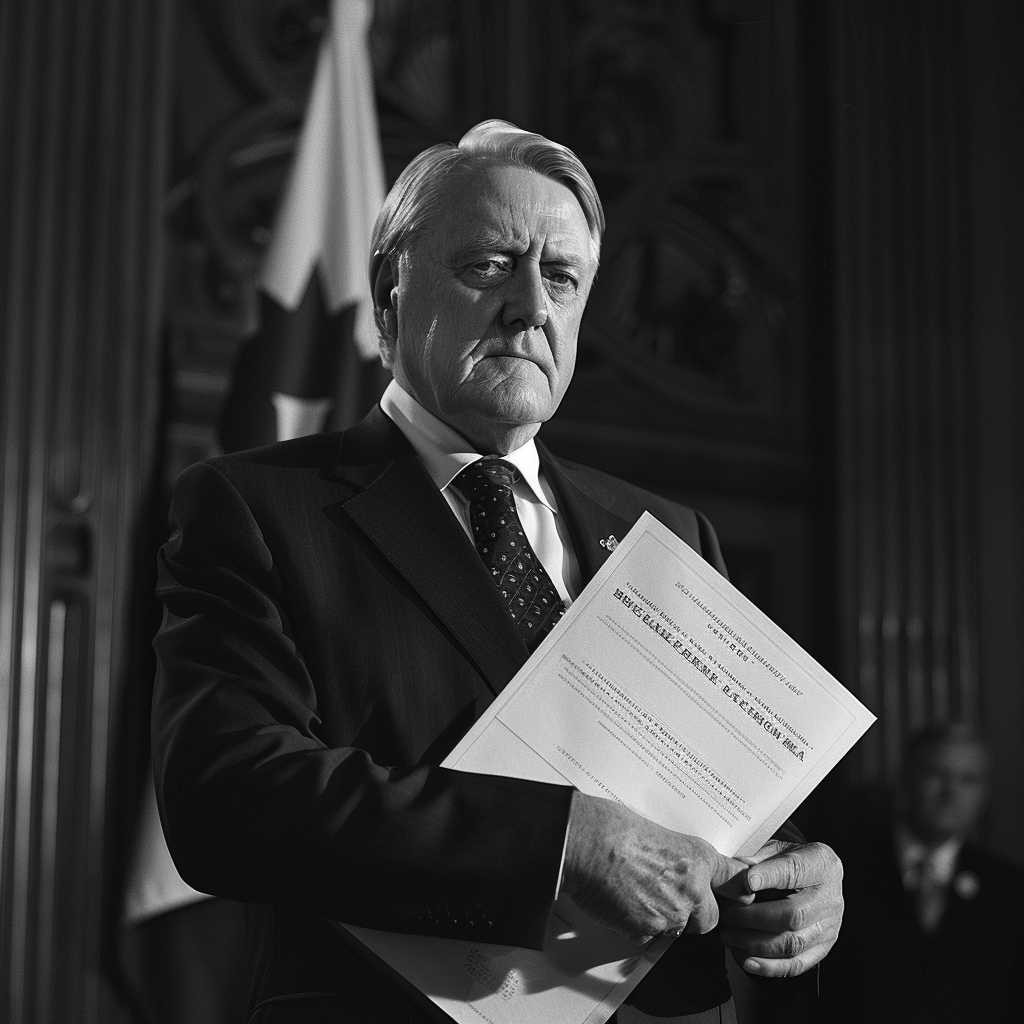The Political Legacy of Brian Mulroney: A Comprehensive Overview
Brian Mulroney, the 18th Prime Minister of Canada, has left an indelible mark on both his country’s political landscape and its position in the global arena. During his tenure from 1984 to 1993, Mulroney tackled contentious issues ranging from free trade agreements to environmental protocols, and his legacy continues to be felt to this day. This examination provides a political-neutral and exhaustive overview of his career, policies, and the lasting effects of his governance.
Early Life and Entry into Politics
Mulroney was born on March 20, 1939, in Baie-Comeau, Quebec. After pursuing his university studies, which culminated in a law degree from Laval University, he practiced law and eventually entered the political scene. His initial attempts to secure a seat in the House of Commons were not fruitful; however, that did not deter his aspirations within the Progressive Conservative Party (PC). His perseverance paid off when he won the party leadership in 1983 and subsequently led the PCs to a significant victory in the 1984 federal elections.
Key Domestic Policies and Reforms
Economic Measures and Free Trade
Mulroney’s economic agenda was marked by a strong push toward pro-market reforms, deregulation, and a reduced role of government in business. He is perhaps best known for implementing the Canada-United States Free Trade Agreement (FTA), predecessor to the North American Free Trade Agreement (NAFTA). These agreements profoundly reshaped Canada’s economic relationships, increasing cross-border trade dramatically but also stirring domestic debate over sovereignty and economic dependency on the United States.
Taxation and Government Financial Policy
Mulroney’s administration bolstered government revenues through the introduction of the Goods and Services Tax (GST), a broad-based value-added tax that supplanted the earlier manufacturers’ sales tax. This policy was unpopular yet has continued to be a mainstay of Canada’s taxation system because it modernized Canada’s tax policy according to prevailing global standards.
Constitutional Affairs
In a commendable effort to amend strained ties with Quebec and address constitutional discord, Mulroney invested significant political capital. The Meech Lake Accord sought to recognize Quebec as a “distinct society” but ultimately failed, exacerbating regional tensions. The follow-up Charlottetown Accord similarly met rejection by referendum, marking another setback in Canadian federalism under Mulroney’s leadership.
Environmental Initiatives
One area in which Mulroney’s legacy shines through in contemporary assessments is his environmental policy. Under his stewardship, Canada became an international advocate for sustainable development, highlighting issues like acid rain and playing an integral role at summit meetings like the Earth Summit in Rio de Janeiro.
Foreign Policy and International Relations
Relations with the United States
The Mulroney era is characterized by close relations with counterparts in the United States. Beyond economic agreements, he maintained cooperative stances on numerous foreign policy matters with Presidents Ronald Reagan and George H.W. Bush according to embrace a common North American outlook on global events.
South African Apartheid
On the international stage, Mulroney staunchly opposed South Africa’s apartheid regime, placing him at odds with some Western leaders but earning Canada praise for taking an ethical position on human rights internationally.
Later Years and Retirement
After resigning as prime minister in 1993 handed over leadership to Kim Campbell who led The Progressive Conservative Party to an electoral defeat. In subsequent years, Mulroney has gravitated towards practicing law once more while also giving occasional lectures on governance and global affairs.
Controversies Post-Politics
It would be incomplete not to mention Mulroney’s entanglement in scandals post-office. Most prominently, the Airbus affair cast a shadow over his reputation after leaving politics when accusations surfaced regarding kickbacks related to aircraft purchases during his time as PM. Mulroney denied any wrongdoing and was eventually awarded a settlement for defamation against the Canadian government.
